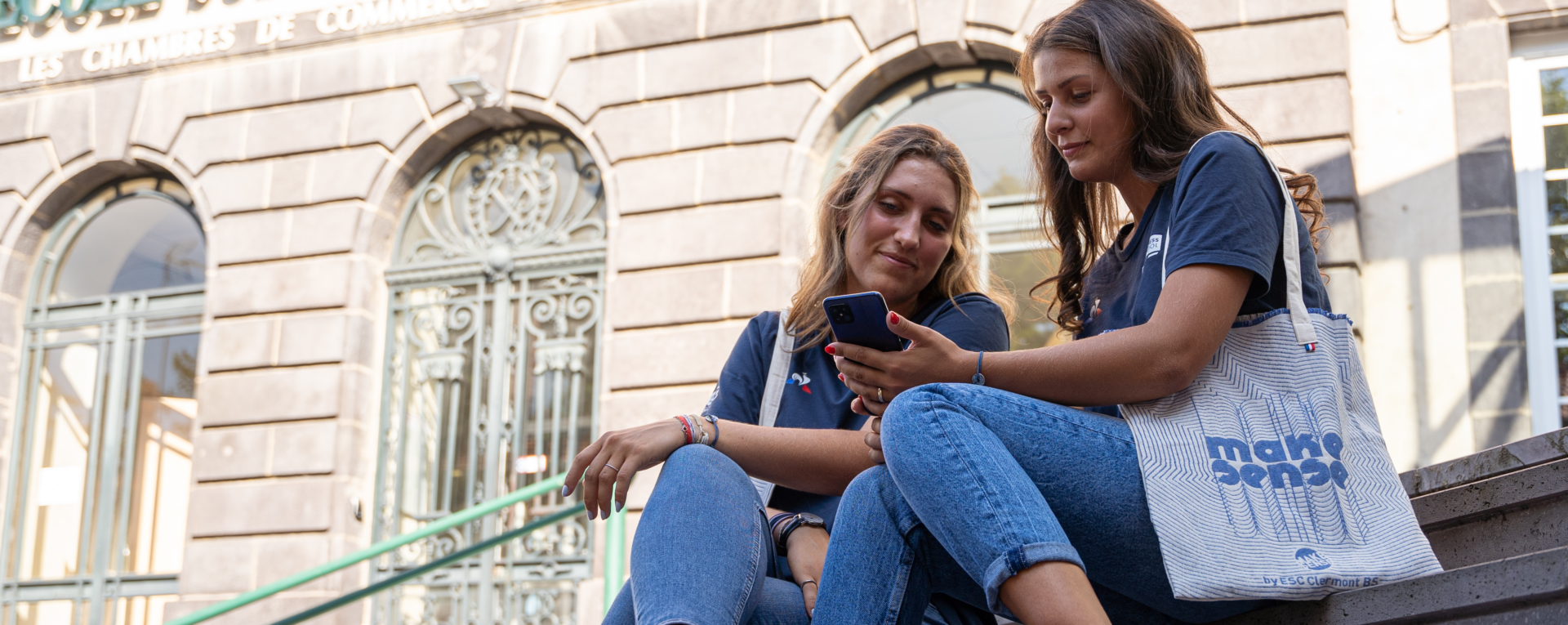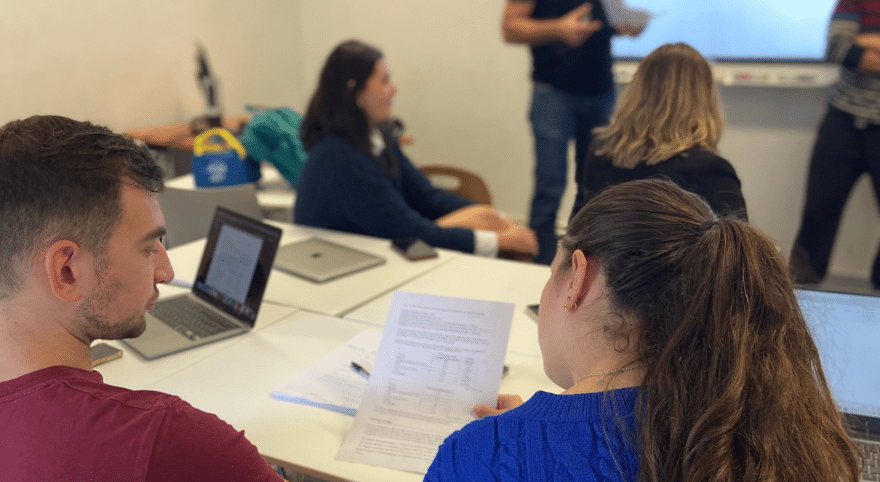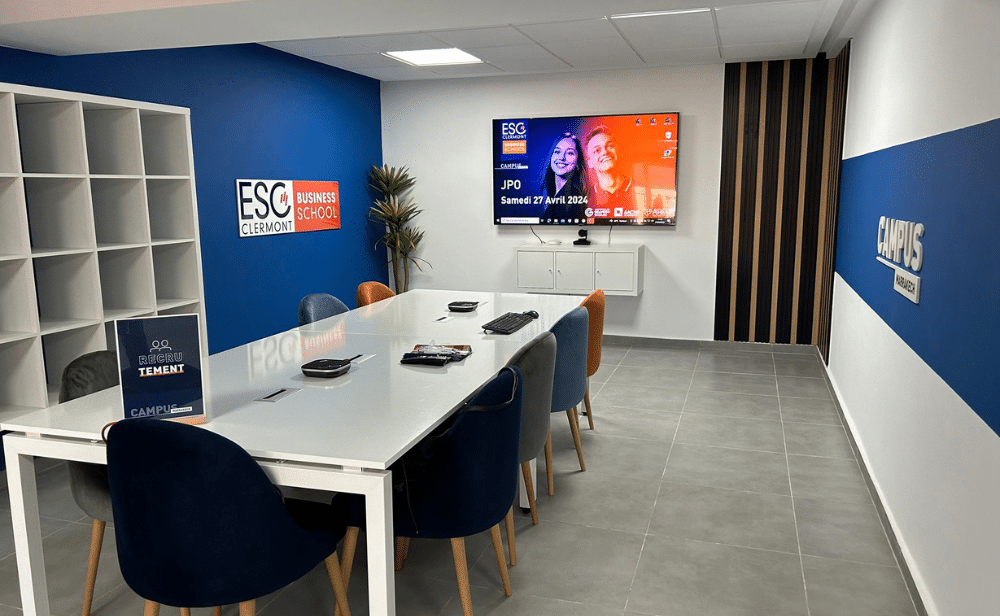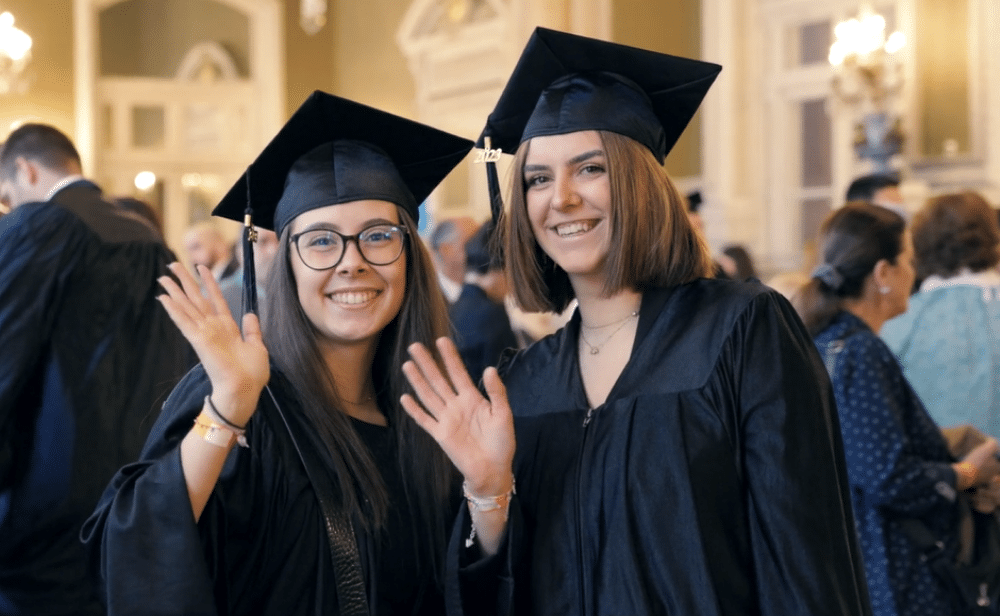

- ESC Clermont Business School
- Study with us
- Programmes
- Bachelor in International Management
- Bachelor in Digitale Communication & E-Commerce
- Master in Management
- Master Grande Ecole online
- MSc – Master of Science Business Intelligence & Analytics
- MSc – Master of Science Corporate Finance and Fintech
- MSc – Master of Science International Commerce & Digital Marketing
- MSc – Master of Science Project Management
- MSc – Master of Science Purchasing & Supply Chain Management
- MSc – Master of Science Strategy & Design for the Anthropocene
- MSc Innovative Project Management (Work-Study Format)
- Doctorate of Business Administration (DBA)
- Executive Education (French only)
- International Students
- Tools & pedagogical support
- Prepare your stay
- Programmes
- Sectors of expertise
- Sectoral sectors
- Proposed majors
- Audit Expertise Consulting
- Business Intelligence
- Designing the Green Redirection
- Digital Design Manager
- E-Business Development
- Financial Engineering & Innovation in Finance
- Financial Engineering and Sustainable Finance
- HR Development & Mobility Support
- HRM and Ecological Transition Management – Programme Grande Ecole Major
- Management Control
- Management of Responsible Organizations
- Marketing & Data Marketing
- Marketing Digital & Communication
- Purchasing & Supply Chain Management
- Sport Business
- Startup Culture & Entrepreneurship
- Faculty & Innovation
- Company & Career
- News & Events
Immersive Pedagogy: Making Contemporary Challenges "Tangible" to Contribute to a Better World
ESC Clermont BS has been incorporating awareness modules on contemporary issues, including the climate challenge, across all its programs for several years. To awaken students’ awareness and sharpen their critical thinking, we focus on immersive pedagogy and offer numerous workshops that mobilize collective intelligence and identify individual and/or collective action levers.
Two examples of pedagogical activities that give meaning to our teachings and provide action points for our students:
1. COLLABORATIVE WORKSHOP: “THE DIGITAL FRESQUE”
This year, under the guidance of Jean-Baptiste Gallié, students enrolled in the Digital Marketing & Communication Major offered in the final year of the Master Grande École, were sensitized to the environmental issues of digital technology using the playful and collaborative tool “The Digital Fresque.”
This three-hour workshop allowed them to discover the different stages of the life cycle of a digital device and understand its environmental impact. Working in small groups, students had to reconstruct the fresco following a guideline that allowed them to grasp various environmental issues such as energy consumption, soil and water pollution, or the depletion of natural resources, and to reflect on concrete solutions to reduce the impact of digital technology.

2. IMPACT STUDY OF THE MOBILITY PACKAGE BASED ON REAL DATA
With the implementation of the Sustainable Mobility Package on September 1, 2022, ESC Clermont BS committed to providing a contribution exempt from contributions to employees who prefer “soft mobility” transport modes for their commuting between their usual residence and their workplace.
What is the environmental and societal impact of implementing this package? This question was posed by Yves Rannou, a lecturer-researcher at ESC Clermont BS, to students in the final year of the Master enrolled in the Major in Responsible Organizational Management.
Using real and anonymized data provided by the school’s human resources department and data from ADEME/CITEPA, students worked in groups on this concrete case study and analyzed the impact of this measure.
Two types of positive impacts emerged in the students’ presentations:
- Environmental Impact: The 67 beneficiaries saw their carbon footprint decrease by 90%. When extrapolated to the entire school, this reduction corresponds to a 23.3% decrease in total emissions related to travel. Based on a ton of carbon worth 100 euros (i.e., the current market price), the environmental impact of this measure is €887,629 for the fiscal year, or €13,248 per beneficiary, net of the cost of the Sustainable Mobility Package borne by the employer for the employee. In other words, the net value of the carbon emission savings generated per beneficiary is €13,248 annually.
- Societal Impact: The 67 beneficiaries enjoyed an individual gain of €187 over the year in terms of purchasing power resulting from the use of “soft mobility” modes: walking, public transport, cycling, scooters, carpooling are much less expensive or cost nothing (e.g., Car = €0.22/km, €0.13/km for buses, €0.03/km for bicycles…). Taking into account the coverage of the Sustainable Mobility Package by the school, each beneficiary had a total gain of €454 in purchasing power over the year.
In addition to these two positive impacts, students noted that there were also positive repercussions in terms of health (less pollution) and well-being (less stress), which certainly need further qualitative evaluation. This case study clearly demonstrates that the Sustainable Mobility Package is an interesting solution promoting a socially just energy transition with a low cost involved.
In Conclusion:
These two pedagogical initiatives, representing a sample of the approaches offered to students throughout their academic journey, illustrate our ability to give meaning to our teachings and train individuals capable of initiating change. They align perfectly with the commitments outlined in our strategic plan Reveal 22-27 and aim to engage our students in an active role as transformers, thereby paving the way for a significant evolution of managerial practices.

Suivez l’actualité de l’ESC Clermont Business School en vous abonnant à notre newsletter !
Merci ! Vous êtes maintenant abonné(e) à notre newsletter.
Vous recevrez dorénavant notre newsletter mensuelle.
@bientôt
We faced problems while connecting to the server or receiving data from the server. Please wait for a few seconds and try again.
If the problem persists, then check your internet connectivity. If all other sites open fine, then please contact the administrator of this website with the following information.
TextStatus: undefined
HTTP Error: undefined
Some error has occured.



